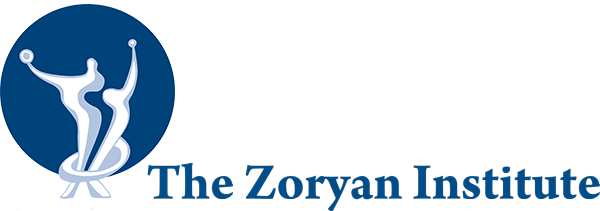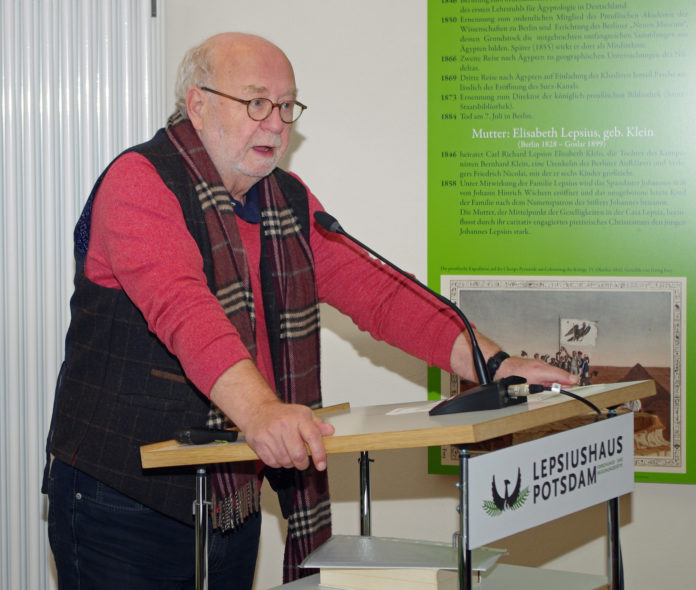POTSDAM, Germany — It was with sadness that we learned from the Lepsiushaus in Potsdam, Germany, that Dr. Rolf Hosfeld passed away on July 23. Hosfeld, who was 73, served as academic director of the Lepsiushaus for the last ten years. Under his direction, the research center located in the former residence of Johannes Lepsius hosted lectures and seminars, becoming a meeting-place for students and researchers.
Hosfeld launched transnational academic networks and research projects which enhanced the regional and international role of the institution. Above all, his work contributed to disseminating knowledge about Armenians, their history and culture, and the genocide.
Rolf Hosfeld was born in 1948, and attended universities in Frankfurt and Berlin, focusing on German studies, political science and philosophy. He did his doctoral work on German poet Heinrich Heine. He engaged in editorial and journalistic activities as well as cinema, and made numerous documentaries. Hosfeld had been a member of the German Writers’ Union since 1982, and published articles as well as fifteen books, some of which have received awards. In addition to Heine, he wrote a biography of Karl Marx which won the “Das politische Buch” (the political book) prize in 2010, and in 2012 he released his work on Jewish-German satirist Kurt Tucholsky.
His history of the Armenian Genocide appeared in 2005 and 2009, and a 2015 revised edition was translated into Turkish (2018) and Armenian (2021). His study of “Operation Nemesis” appeared in 2005. He also edited, co-edited and contributed to works on Johannes Lepsius, a “German exception,” and the German Empire.
As Lepsiushaus director, he organized conferences and symposia, most recently, a project entitled, “Ideas & their Consequences: Genocide and International Justice after 1919,” in collaboration with the AGBU Europe, the European Union of Jewish Students (EUJS) and the Roma organization Phiren Amenca. Co-funded by the Europe for Citizens Programme of the European Union, it began with a series of online events in June, and will be followed by an international conference in late August. The initiative examines two opposing processes in Europe in the wake of the First World War: the ideas of humanitarianism and international justice as opposed to radical extremist political ideologies. The Ottoman genocide of 1915 occupies a central role in this context. Hosfeld opened the series of webinars (held in English) on June 2 with a lecture on “The Rise of International Law: The Talaat Pasha Trial in June 1921.”
Establishing networks for such cooperation goes back in time. In 2012, Hosfeld signed an agreement with Prof. Johann Hafner, dean of the Philosophy Department of the University of Potsdam, aimed at expanding studies on the Armenian Genocide. The Lepsiushaus enjoys a working relationship in Potsdam with the Moses Mendelssohn Center. In 2013 they held a three-day international conference on “Rediscovering Franz Werfel.” In January 2015, Hosfeld joined with Ulrich Schreiber of the International Literature Festival Berlin, to launch a worldwide reading in commemoration of the centenary of the Genocide. Readings took place on April 24 in many countries, featuring literary texts of Armenian authors. The Lepsiushaus collaborates also with the Genocide Museum-Institute in Yerevan as well as the State University in the Armenian capital.








